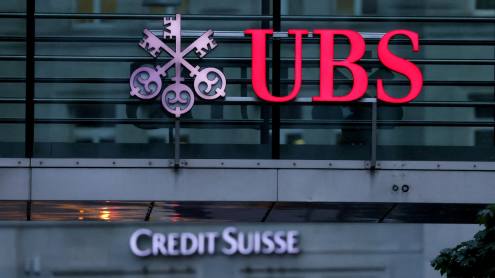According to Domenico Lombardi, a senior fellow at Washington, DC's Brookings Institute and a former board member of the International Monetary Fund (IMF), the fund's involvement in Greece's rescue operation - the biggest challenge and responsibility faced by the IMF in more than 10 years - was absolutely necessary.
The Stability and Growth Pact, the eurozone's own oversight procedure, was supposed to ensure fiscal discipline in countries using the euro, consistent with a common currency. But it did not work because the peer pressures did not work, says Mr Lombardi, and "it really had lost all credibility".
Moreover, Mr Lombardi adds: "Europe doesn't have any recent experience in dealing with a crisis. But the IMF can offer the technology, human capital and technical expertise to deal with this type of crisis. In the end, that is the job the IMF is designed to do."
A critical view
At the other end of the spectrum, Ousmene Mandeng, a senior adviser at Ashmore, the investment firm specialising in emerging markets, is highly critical of the IMF's intervention in the Greece crisis. He believes the IMF's fundamental role in the financial system is as a "lender of last resort" and that it should only get involved when a country can no longer raise funds externally. However, he says: "That wasn't the case in Greece. Greece is a pure fiscal problem. It's a member of the eurozone. The eurozone certainly has enough resources to sort it out by itself."
Furthermore, both Mr Mandeng and Peter Chowla, programme manager of the London-based Bretton Woods Project, a non-governmental organisation that monitors the World Bank and IMF, feel there are important issues of equity raised by the IMF's action. "At that rate, lending at more than 3200% in excess of Greece's quota, the IMF cannot support many countries, certainly big emerging market economies. So that does pose a question of equity," says Mr Madeng.
Rebutting the criticism, Paul Thomsen, the Danish director of the IMF's European department, who led the IMF's negotiating team in Athens, says: "There is a sort of connotation here that we were doing something special for Europe. I wouldn't look at it like that. The fact is we were not dealing with your classic case of an emerging market where there is, after all, a limited spillover. Here we were inside the euro area, with potentially very significant and fast spillovers to other countries, to other advanced countries in Europe and around the world, including the US, with potential major implications for US growth and jobs. There was so much more at stake that us going in with a very big operation was certainly to the benefit of the whole membership."
Mr Thomsen says that the size of the operation was partly a reflection of the depth of the Greek problem - a gross domestic product (GDP)-to-public debt ratio of 115%, a budget deficit of 13.6% and a current account deficit of 11% of GDP in 2009 - and partly due to the authorities' relatively poor record of policy implementation over a number of years, which quickly became the focus of the financial markets. Greece's problem was also becoming a broader regional issue as the country's access to capital markets quickly dried up and spreads started rising on sovereign debt, not only in Greece but elsewhere in the eurozone and in the US.
"We realised pretty quickly that we needed to give the Greek people enough time to establish a good policy implementation record before putting them at the mercy of the markets again. And that's why we basically took them out of the market for about two years. That is the size of the package," says Mr Thomsen.
|
|
|
| Domenico Lombardi, a senior fellow at Washington DC's Brookings Institute and a former board member of the International Monetary Fund (IMF) | Paul Thomsen, director of the IMF's European department |
Tough target
But for the rescue operation to succeed and for Greece to avoid defaulting on its debt, one of the largest and most accelerated cutbacks in fiscal policy - 11% in GDP over just three years - will have to be achieved, with the aim of bringing the general government deficit to less than 3% of GDP by 2014.
The fiscal consolidation envisaged is also tough because Greece, as a member of the eurozone, does not have the authority to devalue or loosen its monetary policy. Instead, in the case of Greece, as with various central and eastern European countries that do not want to depreciate their currencies lest this delay their planned entry into the EU, the only option for fiscal consolidation has been stabilising national finances by 'internal devaluation' - shrinking the economy by cutting public spending in the hope that falling wages and pensions will help the country earn its way out of debt.
Mr Thomsen, who describes the Greek programme as "as ambitious as IMF programmes get", says, nevertheless, it benefited from "all the difficult measures" being approved by the government and parliament before loan payments began. He says prior actions taken by the Greek authorities included the abolition of Christmas, Easter and summer bonuses for all public sector workers, except for the poorest who received a payment in compensation; and approval of an increase in customs taxes, value-added taxes (VAT) and a broadening in the VAT base. Meanwhile, a pension reform, which he says is extremely important for the long-term sustainability of the Greek government's finances, will start to come into effect next year. "We calculate that if the pension system is not reformed, between 2009 and 2060, pension costs would go up by 12.5% of GDP. With the reform they will increase only 2.5% of GDP. That is the European norm."














